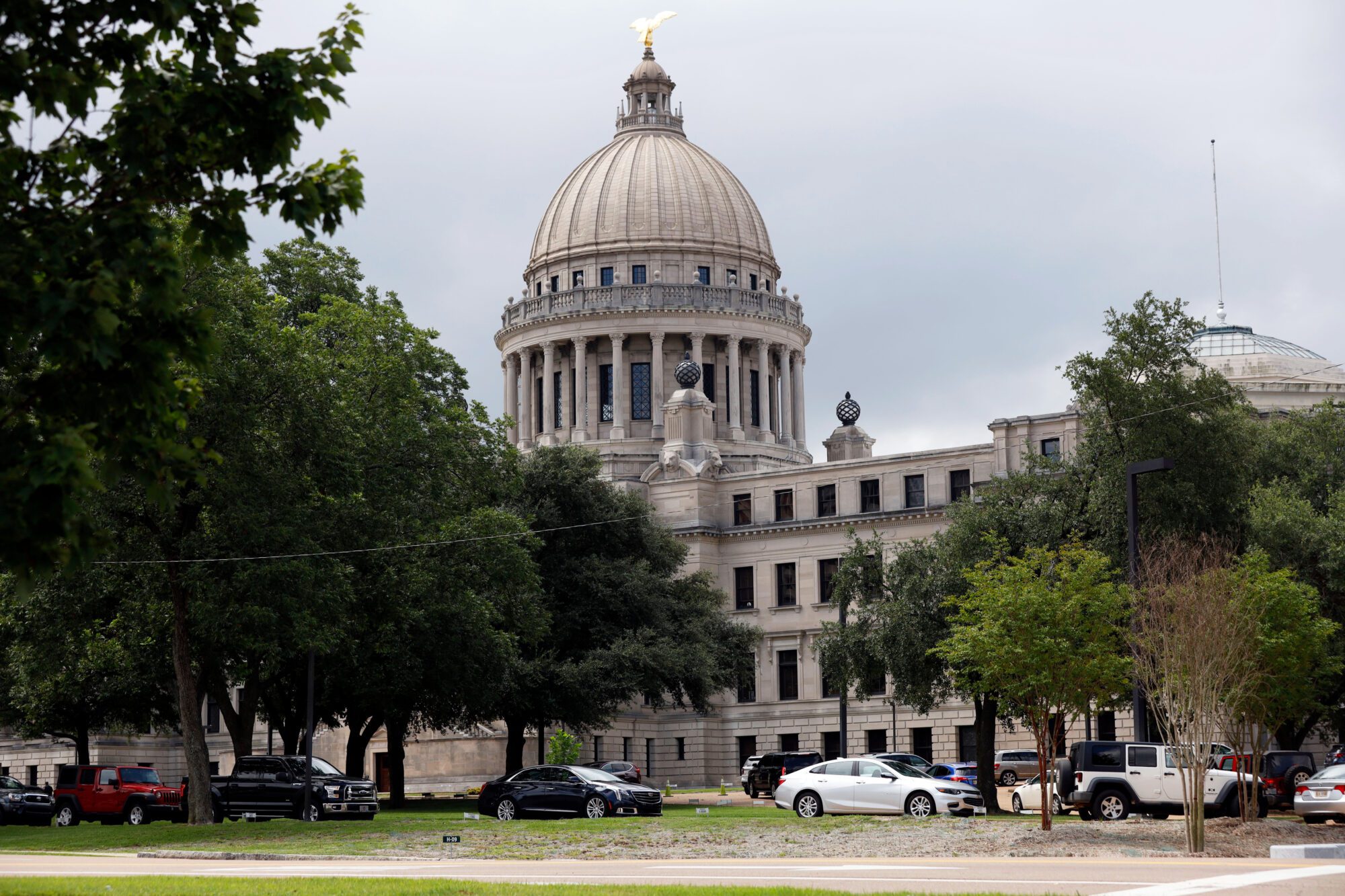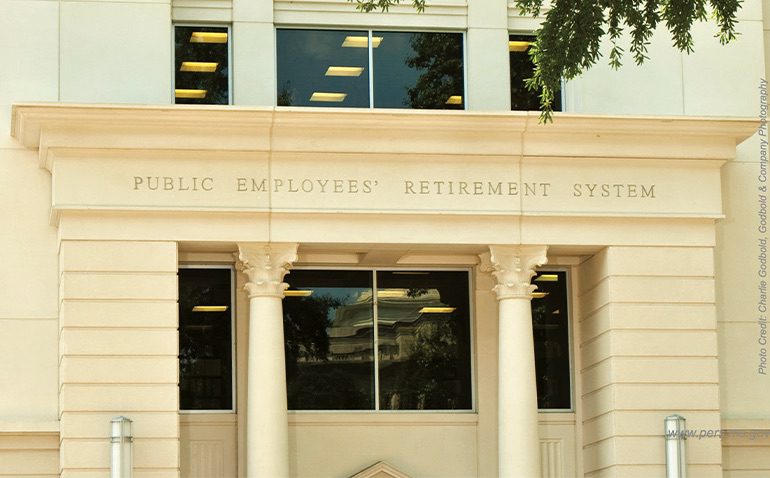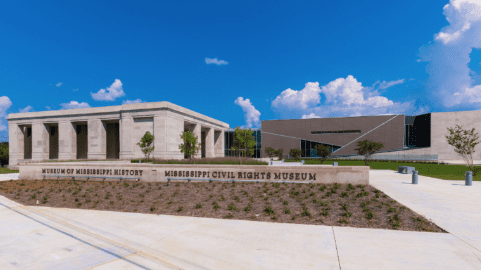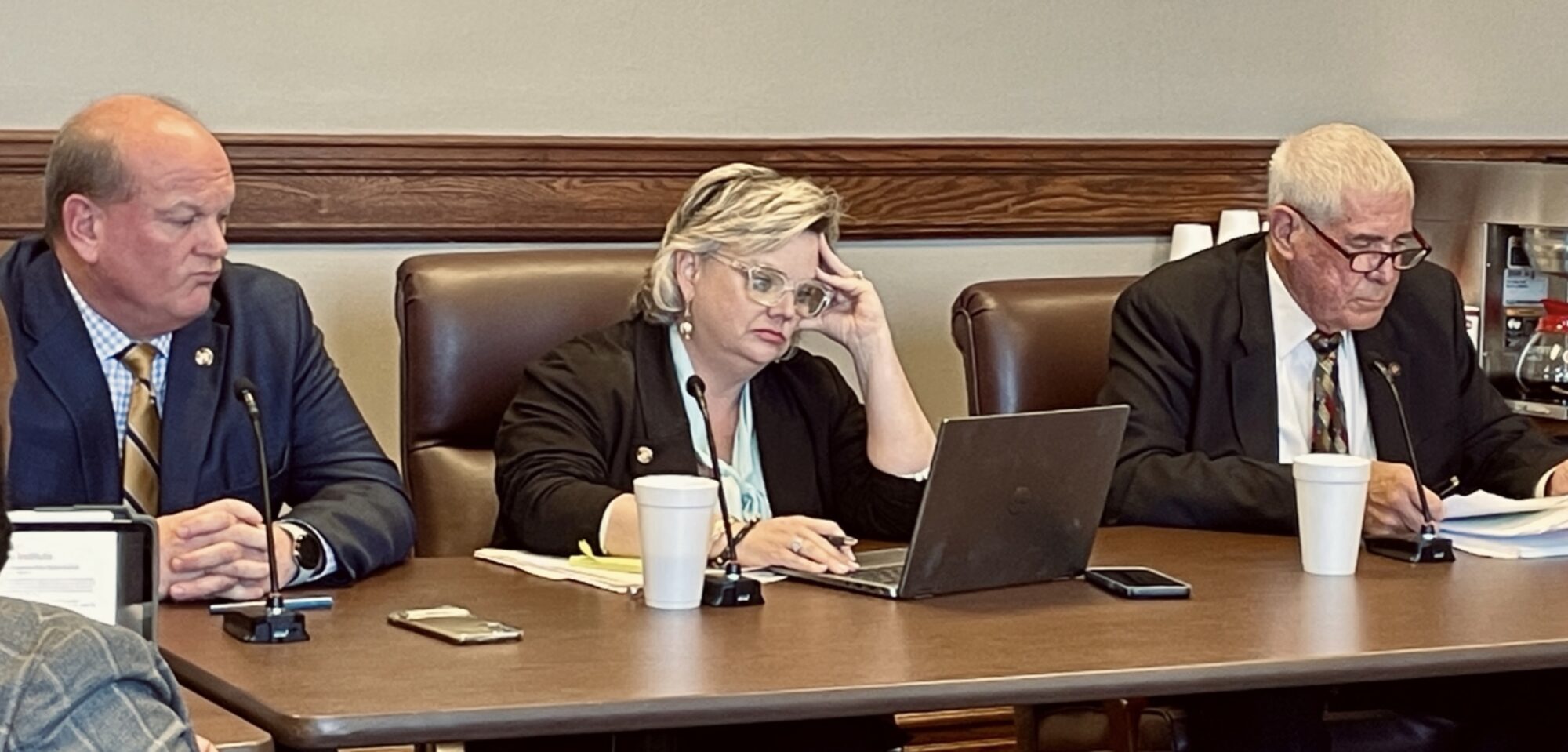
Senate conferees on Medicaid expansion legislation.
- The House Medicaid Chair offered a revised proposal while the Senate Medicaid Chair made it clear that the House plan wouldn’t pass his chamber.
Mississippi House and Senate conferees assigned to work on the Medicaid expansion bill, HB 1725, met for a public conference meeting on Tuesday. The intent was to open a dialogue between the chambers aimed at reaching an agreement to expand Medicaid for the “working poor” in Mississippi.
The Senate plan would allow expansion to 99 percent of the federal poverty level (FPL), pending a work requirement, while the House plan would move it to 138 percent, irrespective of whether its proposed work requirement is approved.
Since the House passed their original bill in February and the Senate followed with their own version, the two chambers have been split on the best way to approach a possible expansion.
The Senate has drawn a hard line at approval from the Centers for Medicare and Medicaid Services (CMS) for a work requirement waiver.
State Senator Kevin Blackwell (R), Chairman of the Senate Medicaid Committee, expressed optimism that conversations were happening between the chambers, but insinuated that the House was forcing the Senate’s hand during the conference discussion.
“Both chambers are off the porch. We’ve both taken steps forward, something that hasn’t occurred and I don’t think a lot of people would have ever thought would occur here,” said Blackwell. “If your position is going to be your way or the highway, no pun intended, you’re going to put us right back on the porch.”
RELATED: Senate Medicaid expansion passes, conference with House likely
Senator Blackwell went on to compare the House to a race car in their efforts for expansion – zooming to get there despite the roadblocks – while the Senate was attempting to take a slower approach.
“While I realize our efforts here today may not result in a compromise, I think at least, despite our differing opinions, we’ve begun a dialogue that has not occurred in this building since the Affordable Care Act in 2010,” said Blackwell.
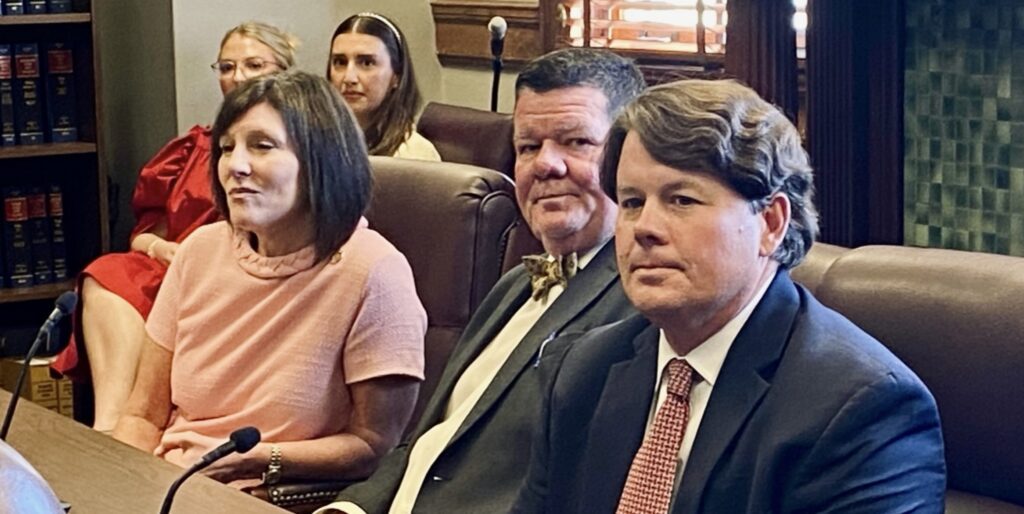
State Representative Missy McGee (R), Chair of the Medicaid Committee in the House, pushed back, saying the House was working to come to a compromise during the conference process. She offered a change in position to an element of the House’s original plan.
“We realize there is more than one way to get to 138 percent and so I think that for today is our biggest obstacle between the two plans,” said Rep. McGee.
McGee said the chamber would be willing to move the 0-99 percent of the FPL to the Managed Care companies (MCO) and leave the remaining 100 to 138 percent of the FPL on the exchange. The caveat, McGee said, is that the state would be required to pay co-pays and deductibles to obtain the approval from CMS for the 90 percent match. Eventually, the state would also be responsible for those premiums.
The most recent numbers from the Mississippi Department of Insurance indicate that roughly 140,000 individuals are on the exchange and between the 100 and 138 FPL. CMS data for 2024 puts the number at 181,844. McGee referenced a Hilltop Institute study, which looked at a “hybrid” plan. She said they estimate the initial cost before offsets would be $174 million to the state. After the first two years, the offsets in that study show it could save the state roughly $31 million.
The revised House plan McGee offered would also include a reverse repealer set at four years.
“We hear a lot in this Capitol, “we’re going to run this like a business,” and I don’t know many states that wouldn’t take that deal; I’m going to give you 90 percent, all you have to give me is 10 back. That position, getting up to the 138 percent of the federal poverty level is critical to us. We feel that is the most responsible way to run this program. In terms of taxpayer dollars, that we would maximize that and enroll the most people doing the most good,” said McGee.
State Senator Nicole Boyd (R) agreed that a main concern of the Senate’s was the negative impact it could have on the exchange, removing the 100 to 138 percent population from those plans.
“The federal government, with what they are already providing for these exchange programs are contributing about $1.1 billion for those exchange programs,” said Boyd.
As their conversation continued, Senator Boyd said it was becoming obvious that the numbers the House and Senate were using were different, ultimately leading each chamber to different conclusions regarding the financial impact of any expansion.
Senate conferee Brice Wiggins (R) said that for many other states that have expanded, it has had a negative financial implication. He said the Senate plan is attempting to eliminate or minimize that.
“What the Senate is trying to do is get us a program that works, that we can say, “hey, these people who are working, we want them to have insurance because they’re working,’” said Wiggins. “Because guess what, the market isn’t helping them right now. But it has to be fiscally responsible.”
Senator Blackwell pointed out that during floor debate, the Senate spent nearly two and a half hours working through their proposal, where the House spent less than five minutes when it initially passed their chamber.
Senator Blackwell said the House proposal as it is, is not one that Senators are willing to move on.
“If this dies, it is going to be harder next year to get here and damn sure it’s not getting brought up in the next two years,” said Blackwell.
Closing remarks from the meeting indicated that the House’s proposed revised plan is not enough to move the Senate to approve it.
Senator Blackwell said that conversations would continue until the deadline, noting that despite tensions in the meeting, both chairpersons would continue to talk.
Conferees could return for another meeting as early as Wednesday.
